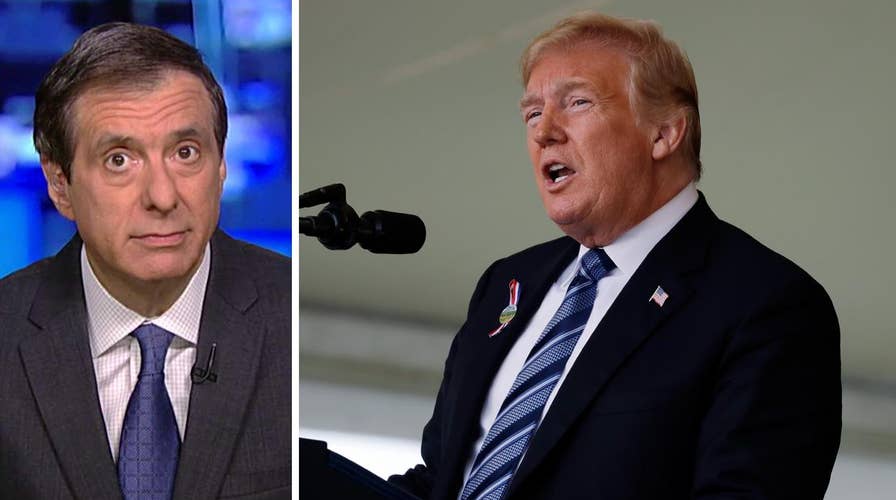Kurtz: Why nearly all Republicans don't trust the press
'MediaBuzz' host Howard Kurtz weighs in on why an increasing number of Americans are losing faith in media institutions.
The Huffington Post headline was designed to get its anti-Trump readers to click.
"Kellyanne Conway: Trump’s Anti-Media Attacks ‘Are Not Healthy.'"
What? Was she saying this publicly? Was even the president's counselor off the reservation?
But it turned out to be a blatant distortion.
Here's what Conway actually said, when asked by Christiane Amanpour on her new PBS show whether "the president might take a stance of his own to pull back from this," meaning attacks on the media.
"I do agree that it's not healthy for the body politic on either side," Kellyanne said. She said that she and others "have tried, the president has tried, to turn down the temperature, to give more access."
So Conway's it's-unfortunate-both-sides-do-it-but-we've-tried-to-fix-it sentiment got twisted into her criticizing her boss. And what the short piece didn't mention was that she also said this: "We see things every single day on TV and in print that I promise you, I swear to God, are patently false."
This is why people don't trust the press.
And yes, the obvious rejoinder to that the White House sometimes struggles with the truth. On Monday, economic adviser Kevin Hassett said the president was wrong when he tweeted that "the GDP Rate (4.2%) is higher than the Unemployment Rate (3.9%) for the first time in over 100 years!" It's actually 10 years. (But those figures do show a booming economy.)
Still, pointing to presidential misstatements and distortions doesn't let the press off the hook when it comes to accuracy and fairness.
A new study out yesterday from the Knight Foundation and Gallup shows that most Americans are losing faith in the media, and their reasons largely center on matters of accuracy or bias. A stunning 69 percent of adults say they have lost trust in the media over the past decade, a figure that rises to 94 percent for Republicans. Among Democrats, 42 percent have lost trust, and the number is 75 percent for independents.
Those of us in the news business have company. Social media, run by the tech giants, were once seen as a liberating and democratic force. Now there are deep suspicions of Big Tech, and its increasingly maligned leaders have lost their heroic glow.
Here, too, self-inflicted wounds play a major role. These outfits were slow to police their sites, combat Russian propaganda, address the scourge of bullying and fabrication and—in an echo of the MSM’s plight—are regularly assailed for discriminating against the right.
As NYT columnist Nathaniel Popper puts it: "Admiration of the tech world has, in the wake of a growing list of scandals, quickly soured into an intense suspicion that manages to cross partisan lines, similar to what Wall Street faced after 2008."
Now Facebook, Twitter, Google and the like resemble a machine that its makers can no longer control, even if they are willing to spend the vast sums that would require.
All these doubts seem weaponized in the age of Trump, given that much of the country distrusts the president and a sizable chunk of the country admires the president while distrusting his adversaries.
This constant warfare, which Kellyanne alluded to, leads to sinking confidence in both sides, as the White House and the press routinely trade charges of lying and bias. It’s as though airlines were constantly running ads accusing the others of being unsafe.
Things have reached the point where not only do many people believe the New York Times shouldn't have published the op-ed by the unnamed senior official, but some accuse the paper of outright deception by saying the author actually works there. That is of a piece with Bob Woodward describing a dysfunctional administration and the president accusing the veteran journalist of writing fiction and making up sources.
Maybe, in another time and place, the media and other institutions can regain some of the trust they have lost. Some people in the Knight study, at least, say they're open to that. But it doesn't seem to be on the horizon any time soon.





